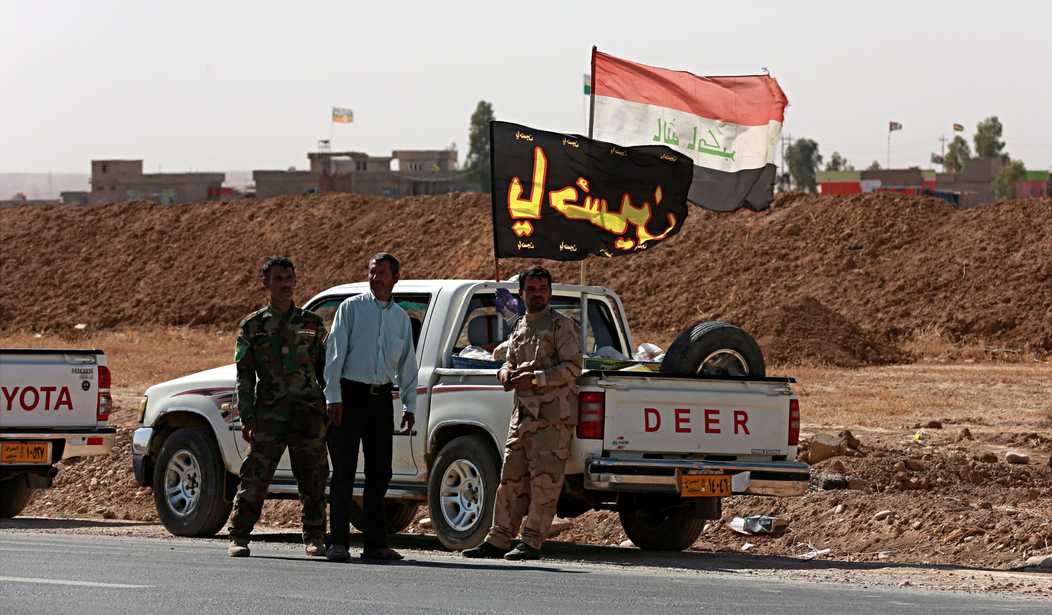WASHINGTON – Retired Army Gen. David Petraeus on Monday expressed worry over Iran’s influence in Iraq, following the Tehran-backed seizure of the oil-rich Iraqi city of Kirkuk from the U.S.-backed Kurds.
“We want inclusive governance to succeed in Iraq, but there are elements up there, engaged in this … that are not fans of inclusive governance and that want to Lebanon-ize Iraq, just like they’d like to Lebanon-ize Syria,” Petraeus said at the Hudson Institute. “In other words, to use militias controlled by Iran, by the Quds Force, in those countries in the same way that they’ve used Hezbollah in Lebanon, so that it doesn’t just have a paramilitary aspect to it, but it has a political aspect to it.”
Earlier this month, Iraqi government forces captured Kirkuk following the late September Kurdish independence referendum that Baghdad has declared illegal. Following the attack, President Trump said that Washington is not going to choose sides in the matter.
“We’ve had for many years a very good relationship with the Kurds, as you know, and we’ve also been on the side of Iraq, even though we should have never been there in the first place,” Trump told reporters at the White House.
The attack followed the White House’s promises of tougher action against Iran in the region. According to NBC News, Qassem Soleimani, commander of the Iran’s Quds Force and advisor to Iraq’s Shiite militias, was instrumental in the seizure of Kirkuk. Petraeus said he’s concerned about the divide the recent events have created among the Kurds, as members of the Patriotic Union of Kurdistan and the Kurdistan Democratic Party have traded blame in the defeat.
“I’m quite concerned, again because different elements are exploiting this for their own purposes because it is causing a bit of a break between the Kurdish Regional Government partners, between the PUK and the KDP in particular,” Petraeus said. “Because it could go further. Again, I’m hopeful that this is halted.”
Petraeus described both the Kurds and the Iraqis as “our friends.”
Petraeus, who served as director of the Central Intelligence Agency from 2011 to 2012, discussed the American conflict in Afghanistan as well, calling the fight against radical Islamic extremists and the malign actions of Iran a “generational struggle.”
“This is not the fight of a decade, much less a few years,” he said, adding that the U.S. will not be able to use Delta Force operations and drones alone to eradicate radical Islamic terrorism. He said that, unfortunately, the “Las Vegas” rule does not apply to the region, in that what happens there does not stay there. He described how displacement from the spread of ISIS has created “a tsunami” of refugees stretching into the EU Schengen Zone. Not having time-based draw-downs in Afghanistan, he said, is a “wise approach.”
Following continual buildup of Taliban forces, the Obama administration in 2016 announced that the estimated 8,400 U.S. troops in Afghanistan would remain through 2017. President Trump this past August, during his first address as commander in chief, announced the deployment of potentially thousands of additional troops. Trump has authorized the deployment of as many as 3,900 more troops to Afghanistan.









Join the conversation as a VIP Member